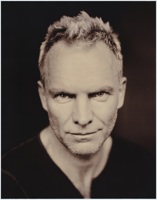Free Expression Groups Call on Iran to Open Door to UN Rights Experts (Source: PEN)
A coalition of international nongovernmental organizations led by the Committee to Protect Journalists are highlighting the urgency of Kian’s case and that of other writers, journalists and publishers, noting that some 47 journalists are currently in prison in Iran – more than any other country on earth has imprisoned at any one time since 1996:
“Geneva—Organizations supporting journalists, writers and publishers in Iran have called on Tehran officials to open the door to the United Nations’ special rapporteurs on human rights, including its expert on freedom of expression, Frank la Rue.
Resisting calls here for an international investigation into post-election abuses of human rights in Iran, Tehran’s envoy Mohammad Javad Larijani told both diplomats and the media on Monday that there was a “standing invitation” for the UN’s special rapporteurs to visit Iran and investigate claims of rights abuse—only to reverse his position today.
The rapporteurs should be allowed to visit the country at the earliest opportunity, said representatives of the “Our Society Will Be a Free Society” campaign, in Geneva to observe the UN Human Rights Council’s review of Iran’s record this week…
“Mr la Rue and the other UN rapporteurs should not be prevented by the Iranian government from making their own independent assessment of the situation,” said Alexis Krikorian of the International Publishers Association. “The UN rapporteurs should go to Iran as soon as possible. Certainly we should hear their reports before the UN even starts to consider Iran’s bid to become a member of the Human Rights Council this May.”
Addressing the hearing before the 47-nation Council’s quadrennial Universal Periodic Review (UPR) procedure, Larijani said Iran was in “full compliance with the relevant international commitments it has taken on in a genuine and long-term approach to safeguard human rights.”
UN human rights experts have already voiced concerns about mass arrests and the abuse of opposition supporters, clerics, journalists, students and others, said Rohan Jayasekera of Index on Censorship, “But independent investigation on the ground is crucial.”
The Council’s working group report on Iran, which included concerns raised by diplomats and human rights groups, was adopted at noon in Geneva on Wednesday, following Iran’s grilling by other nations at the UN on Monday.
“The UN should have been able to mark Iranian New Year this year by announcing a programme of visits to Iran by its human rights rapporteurs,” said Jayasekera. “Instead today Iran repudiated its international obligations on human rights and further underlined its unsuitability for a seat on the UN Human Rights Council.”
Freedom of expression and peaceful assembly continue to be undermined by the Iranian regime and human rights defenders face an increasingly precarious situation, said six of the rapporteurs in a statement last year.
The rapporteurs questioned the legal basis for the arrests of journalists, human rights defenders, opposition supporters and demonstrators, saying it was unclear and gave rise to fears of “arbitrary detentions of individuals legitimately exercising their right to freedom of expression, opinion and assembly.”
The statement was issued by: Manuela Carmena Castrillo, Chairperson-Rapporteur of the Working Group on arbitrary detention; Philip Alston, Special Rapporteur on extrajudicial, summary or arbitrary executions; Frank la Rue, Special Rapporteur on the promotion and protection of the right to freedom of opinion and expression; Manfred Nowak, Special Rapporteur on torture and other cruel, inhuman or degrading treatment or punishment; Margaret Sekaggya, Special Rapporteur on the situation of human rights defenders; and Santiago Corcuera, Chairperson-Rapporteur of the working group on enforced and involuntary disappearances.
The list of prisoners of conscience currently held in Iranian prisons includes some of Iran’s most distinguished journalists, some of the country’s leading bloggers, and Kian Tajbakhsh, an Iranian-American scholar sentenced in August 2009…following a mass trial of 140 activists, intellectuals, and writers accused of fomenting a “velvet revolution.”
Among the journalists are Emadeddin Baghi, also a well known author and human rights defender; Mashallah Shamsolvaezin, an award-winning editor and press freedom advocate; and Shiva Nazar Ahari, a human rights journalist who has been jailed twice in the last eight months. The Committee to Protect Journalists this month announced that the 47 journalists now in prison in Iran are more than any other country on earth has imprisoned at any one time since 1996.”
 Sting makes appeal for Kian Tajbakhsh and Iranian detainees.
Sting makes appeal for Kian Tajbakhsh and Iranian detainees.